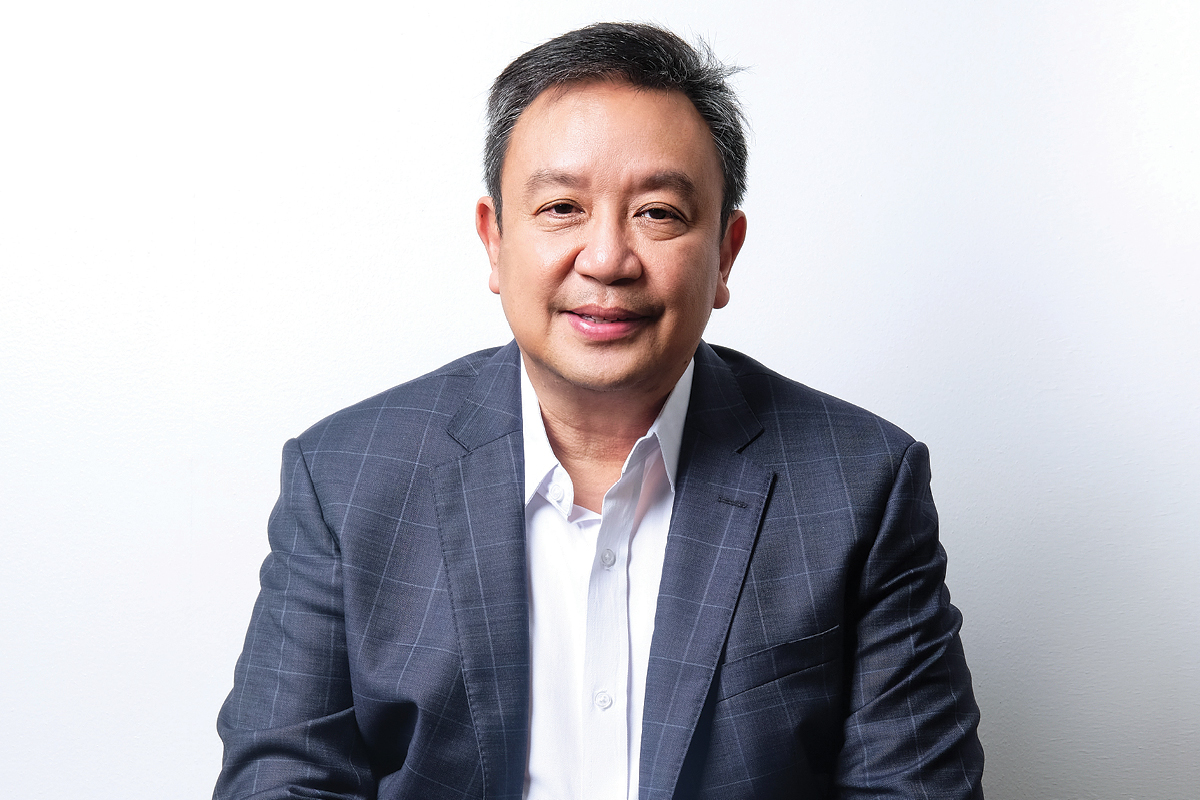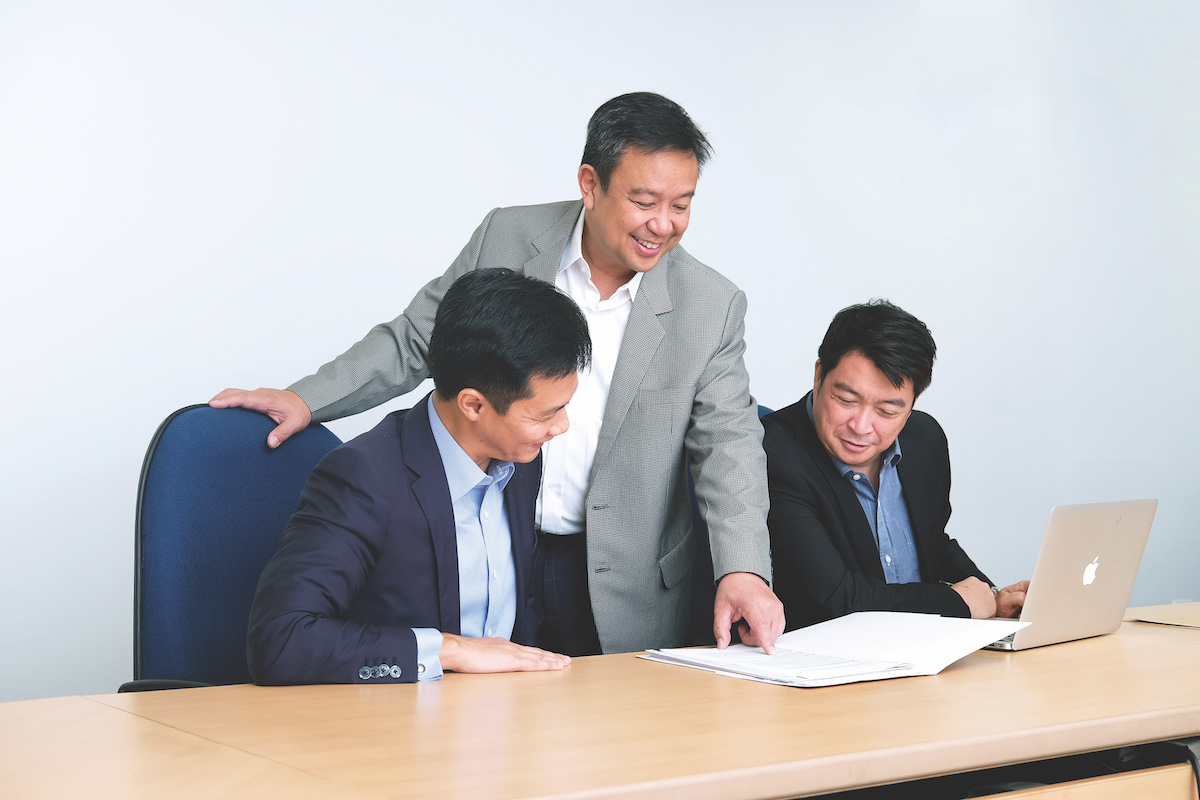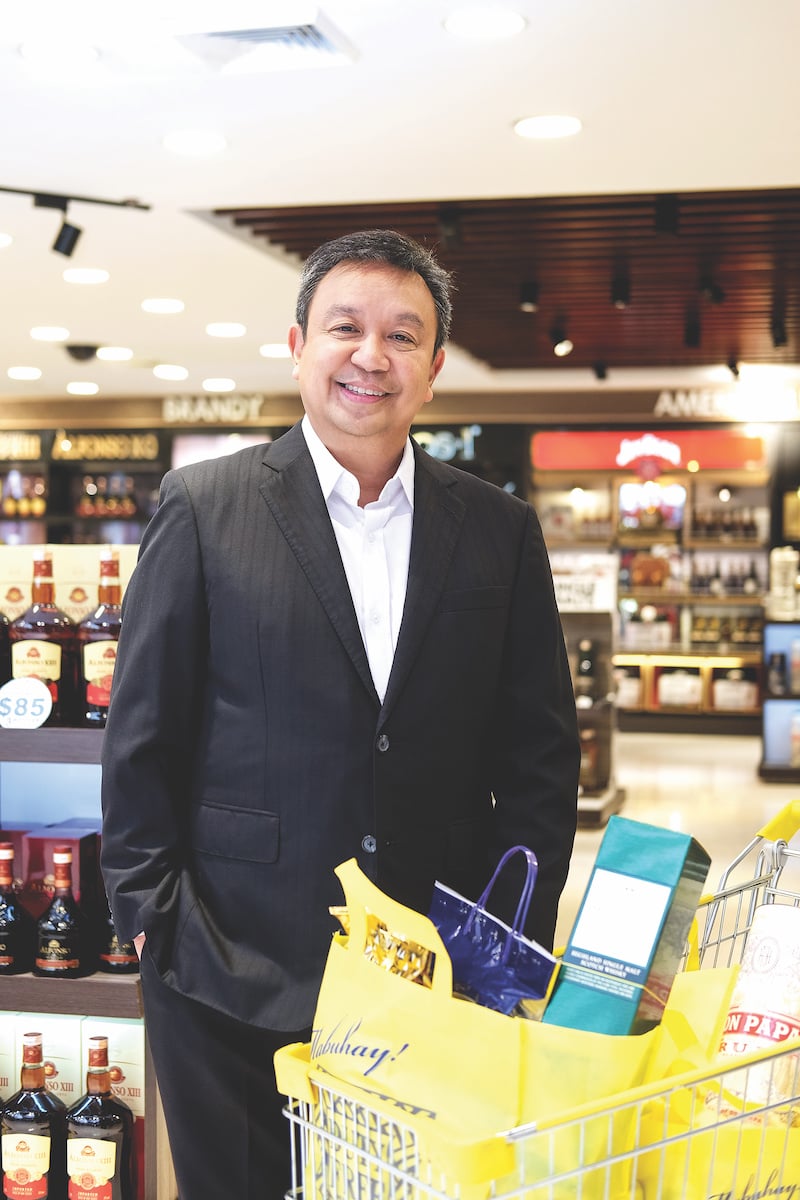For generations, Filipinos have passed down the tradition of pasalubong giving, where resident travellers bring back homecoming gifts for friends and family members. Based on the principle of reciprocity, the ritual of pasalubong is meant to reinforce friendships, honour the recipient and share one’s good fortune for being able to travel abroad.
Today, there are dozens of pasalubong stores all over the archipelago, but none more well-known or well-stocked than Duty Free Philippines (DFP) – the top-of-mind destination for affordable and accessible pasalubong shopping. As the sole operator of duty- and tax-free merchandising system in the Philippines, DFP operates duty- and tax-free stores at international airports and seaports, selected hotels, tourist resorts, and commercial or trading centres throughout the country.

As an attached agency of the Philippines Department of Tourism, DFP has remained committed to providing its customers a world-class shopping experience and contributed to the development of the national tourism industry since it was established in 1987. In recent decades, the travel and tourism industry has continued to experience growth and deepening diversification to become one of the fastest-growing economic sectors in the world – with a global economic contribution (direct, indirect and induced) of more than US$8.27 trillion in 2017 alone, according to Statistica. As a major player in international commerce, tourism represents one of the main income sources for many developing countries such as the Philippines.
With this in mind, DFP is committed to providing world-class quality merchandise and service to Filipino international travellers, overseas Filipino workers, and foreign tourists by meeting the unique market’s ever-changing needs. Pasalubong shoppers can choose from a range of products including liquor and wine, confectionery and snacks, fragrances, cosmetics and electronics.
A highly regarded DFP veteran, current COO Vicente Pelagio Angala joined the organisation in 1987 as an imports assistant in the treasury department. Armed with a Master in Business Administration from the San Beda Graduate School, his potential was realised and he quickly moved up through the ranks to become the international department manager, the non-consumable merchandising department manager and the finance division manager. In 2016, Vicente replaced Lorenzo Formoso as COO of DFP, a position that typically changes following the appointment of a new country president.

Vicente says the company has come a long way since the launch of the first duty-free outlet in Manila Ninoy Aquino International Airport (NAIA) in May 1987, which offered a small range of liquor, tobacco, fragrances and confectionery. “In terms of my professional growth, I am very grateful of all the hard work and perseverance it took to rise through the ranks at DFP since 1987 – going from an imports assistant to COO,” he recalls. “This year in particular has seen a great deal of expansion for the company, which I am proud to have been a part of. We are the country’s sole operator of duty and tax-free merchandising, and our outlets cater to a diverse mix of international passengers by offering an exciting line-up of duty-free staples.”
Geared for growth
DFP’s two departure shops at NAIA were joined by a third outlet at the Mactan International Airport in Cebu in late 1987, followed by The Manila Hotel and Manila Garden Order Centres just a year later. In 1989, the company launched its first off-airport shop – the 8,000-square-metre Fiesta Shopping Center. It wasn’t until almost a decade later that DFP opened its largest flagship Fiestamall store, which continues to hold its place as the top destination for duty-free shopping in the country.
In 2017, DFP celebrated its 30th year in the service of Philippine tourism. The business celebrated through two one-day events at its flagship DFP Fiestamall downtown outlet in May and October, which generated combined sales of US$3.4 million. Through the first four months of 2018, sales were up 7.5% compared to the same period last year and 4% ahead of target for the period.
Building on a successful 2017, DFP has already had a series of exciting launches this year. In June, Vicente helped launch the 3,600-square-metre DFP Landside store at Ninoy Aquino International Airport Terminal 3 to complement the product categories offered in its flagship Fiestamall and Mactan-Cebu Terminal 2 departures outlet. “Here, we offer duty-free staples such as the crowd-favourite paspack (pasalubong package), other confectioneries and snacks, liquor and tobacco, clothing items and fragrances. Because our prices are lower than the market prices in Manila, the public’s reception of both outlets has been wonderful,” Vicente explains.
Anticipating high tourist numbers in the coming years, DFP continues to expand its offering to reach more affluent Filipinos and foreign travellers, particularly from South East Asian countries. In June this year, it launched its first luxury store at the SM Mall of Asia complex in Pasay City. “At 4,200 square metres, the Duty Free Luxe is one of our largest shopping outlets,” says Vicente. “It carries branded and high-end imported goods such as perfumes and cosmetics, high-end liquor and wines, and a wide range of fashion brands – from luxury designer labels like Bally and Ferragamo to mid-priced fashion labels like Coach and Michael Kors.”
Spreading Filipino culture
According to Vicente, confectionery and chocolates, liquor and wine, tobacco, perfumes, cosmetics, and fashion continue to come out as DFP’s top-five best-selling categories. “The Philippines is home to a lot of globally competitive products: from the infamous sweetness of Guimaras mangoes and well-loved, indigenous handwoven textiles and other accessories, to beauty and health products made from local ingredients – the Philippines has much to be proud of,” he notes.
Vicente Pelagio Angala’s top 3 tips for a successful growth strategy:
- Set a goal
- Always be willing to learn
- work hard
Vicente believes that DFP’s suppliers and partners are crucial to the continued success and expansion of its business throughout the Philippines. “We strive to maintain a fruitful working relationship with each and every one of them by understanding each other’s business and giving them the utmost respect that they deserve,” he explains. “Early last year, we started carrying locally made products in our stores through Go Lokal, a program launched in collaboration with the Department of Trade and Industry, which highlights quality, local Filipino micro, small, and medium enterprises. This part of our business has steadily grown to this day, and we expect that it will continue to grow in the coming years.”
While Vicente doesn’t mind a good challenge, he says the recent entry of big rivals into the retail market has made the competition fiercer than ever. “This includes the rise of other membership shopping superstores offering equally competitive deals and prices, and trade liberalisation, which has eased the importation of goods for local retailers,” Vicente notes. Nevertheless, DFP aims to augment market revenues, and expand its reach to consumers to support the Philippines’ economic growth.
“We have placed specific rules and guidelines within the company to prevent the mishandling of our products, and with regards to reaching out to our customers, every location has its unique needs and demands,” Vicente explains. “We want to make sure that each outlet is stocked with the proper mix of merchandise to cater to the discriminating tastes of international travellers visiting the surrounding tourist destinations.”
Going cashless
The online shopping revolution is spreading worldwide with more people drawn to the convenience that ecommerce platforms offer. According to global research firm Kantar Worldpanel, sales of fast-moving consumer goods (FMCG) sold online is expected to grow by 7.2% by 2020. In 2017 alone, Asia’s FMCG market through ecommerce platforms grew by 4.3% and it’s expected that India and Indonesia will further drive FMCG growth in ecommerce platforms in the future. In the Philippines, a large part of this growth is attributed to its rising middle-class, tech-savvy population mainly consisting of millennials – a generation that makes up around 47% of the Filipino workforce.

With the advent of the digital age, DFP hopes
to reach the online international travellers’ market to inspire and encourage them to continue the custom of pasalubong. Always aiming to enhance the customer experience, DFP continues to leverage new technologies to improve its offering and take advantage of the number of customers choosing ecommerce over in-store. “With the increasing popularity and convenience of online shopping, we are exploring ways to develop an online shopping system to give our Balikbayans, frequent flyers, and foreign tourists easy access to our wide array of duty-free products,” Vicente explains.
The 2018 Visa Consumer Payment Attitudes Study revealed that in 2017, the portion of Filipinos who shopped online increased from 71% to 92%, and that almost seven in 10 Filipinos expressed confidence to go cashless for one to three days. The survey also showed that 70% of respondents had already lived cashless for at least a few days, with convenience and safety being the main drivers behind their digital behaviour.
“With the launch of our new online platform, arriving travellers will be able to purchase our products online via their computer or smartphone even before they arrive in the Philippines,” Vicente remarks. “When they land at the airport, they can easily claim their purchased products at the Duty-Free stores without having to browse or wait in line.” Eventually, Vicente says, a mobile application and a parcel delivery service will also be offered to Philippines residents.
Expanding the base
Recognising the potential of social media in reaching new and geographically dispersed audiences, DFP has employed a comprehensive social media outreach strategy. “We have started reaching out to existing and potential customers through platforms including Facebook, Instagram and Twitter to highlight in-store promotions and marketing efforts,” Vicente explains. “Our social media community has grown exponentially over the years. When we started on Facebook some five years ago, we only had around 5,000 people in that social community. Now, we have over 250,000 fans on Facebook. We’re also in the process of revamping our website to provide our customers with more information about our products and services.”
Amid its upcoming planned commercial projects, DFP is undergoing an internal reorganisation to streamline its front- and back-end operations and transform itself into a ‘lean and mean’ workforce to reduce operational costs. “Our all-new enterprise retail solution manages and optimises everything from our point-of-sales systems to our warehouse inventory, all the way up to our finances,” Vicente explains. “This upgrade consolidates our previously independent databases into one complete system and has helped us streamline our operations to make them more efficient without sacrificing the quality of our goods and services.”
DFP Fiestamall
Opened in 1997, DFP’s flagship Fiestamall store boasts a 24,000-square-metre selling area offering a wide range and distinct selection of merchandise – from chocolates to cosmetics, eyewear to electronics, fashion to food, liquor to luggage, watches to white appliances. Just a short drive from Terminal 1 of Ninoy Aquino International Airport, it serves to showcase the Philippines as a shopping haven and home of the world’s top brands by delighting international travellers with tax-free bargains and renowned Filipino hospitality.
The goods sold are often imported products from around the world but mainly from the US, Asia and Australasia, and are not found in any other shopping malls in the country, aside from duty-free malls. Only arriving passengers and their companions are allowed access and passports must be presented on arrival.
A giving culture
Committed to continuing the pasalubong giving tradition, Vicente likens DFP’s culture to a close-knit family unit. “People here have worked with each other for years, espousing the core values of teamwork, resourcefulness, integrity, caring, efficiency and professionalism. I have always believed that a great leader inspires others to be their best and ultimately become great leaders,” he explains. “Aside from the regular skills training and seminars, our current company reorganisation will offer even greater opportunities for our employees in terms of professional and personal growth.”
Vicente explains that his people are the reason he comes into work each day. “They make going to the office a worthwhile activity,” he exclaims. “In my job as COO, success means being able to relate to the people that I work with – from the managers to the staff, and to the people who remind me of my humble beginnings in the company. Success is based on not only my work, but also on the work of my team. It is about making a difference in people’s lives.”


